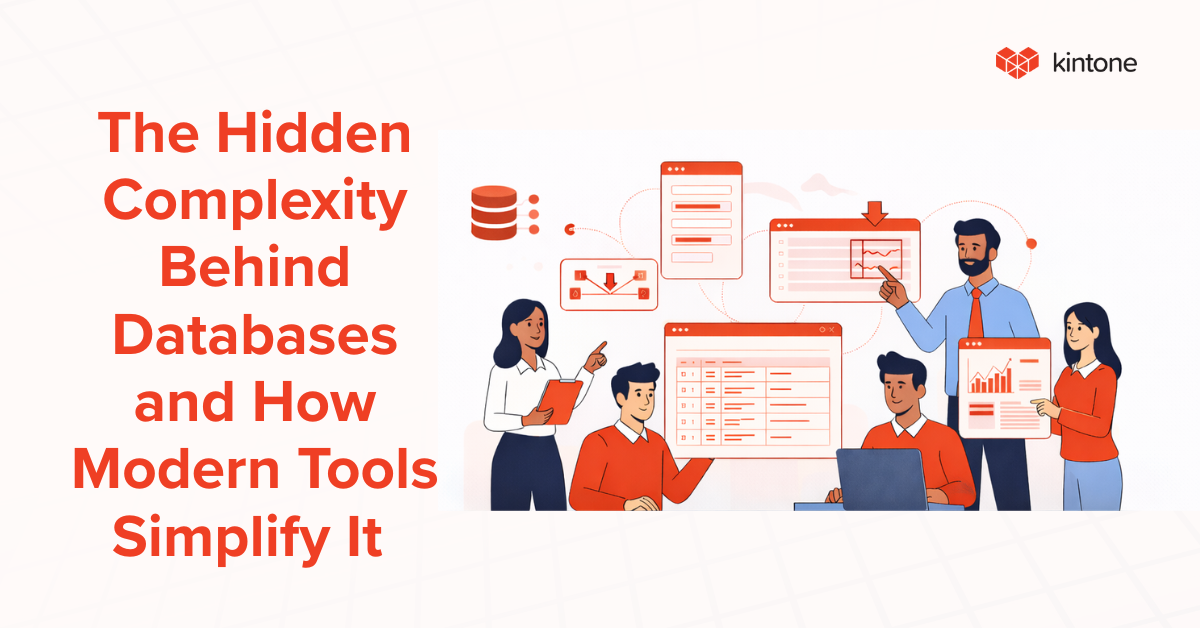It’s no secret that no-code/low-code platforms are quickly becoming the future of software development.
According to Gartner, no-code/low-code application development will be responsible for more than 65% of application development activity by 2024, and the global no-code market is set to generate $187 billion by 2030.
Judging by the numbers, it’s clear that businesses see the value in migrating to no-code platforms, especially in the midst of a growing software developer gap. They’re cost-effective, extremely customizable, and amazingly agile– they even allow you to be your own developer.
We could go on and on about the benefits of no-code platforms, but we also understand the importance of researching risks – specifically security risks – when choosing a new software solution.
Questioning the security of no-code technology is completely valid: Cybercrime has increased 600% due to the pandemic, including both internal and external threats, and could cost companies up to $10.5 trillion yearly by 2025. Between this, and the thought of any old regular Joe becoming a developer, it’s no wonder that “Are no-code platforms secure?” is such a common question.
There’s a lot of information out there surrounding the security of no-code platforms. Luckily, we’ve rounded up some of your top questions regarding no-code/low-code security, and we’re breaking down the answers below.
Are no-code platforms more secure than other software?
Yes, they can be.
According to Sandy Carielli, Principal Analyst at Forrester, “applications built on low-code platforms can be more secure than those built with more traditional coding methods.”
Cybersecurity magazine SecurityIntelligence.com explains why: “Traditional application development doesn’t always take security into account. Or, someone puts it in place later. But with secure low-code platforms, governance and control are built-in before your people start tinkering. This means IT maintains and sets centralized control over access, automation and data assets.”
One of the key ways this is done is with built-in permissions. IT Administrators can set permissions around app development, access, editing. Some platforms (like Kintone) also go a step further and offer security on a field-by-field basis within data records themselves.
Another important point is that no-code and low-code platform developers know their user audience has little to no programming or IT experience. Mounir Hahad, head of Juniper Threat Labs at Juniper Networks noted that "[No-code development] also has the advantage of raising the security barrier since most lower-level vulnerabilities, stemming from the lack of input validation and code integrity checks, are taken care of by the platform.”
At Kintone, we consider it our responsibility to secure our platform and ensure the quality of our applications before putting the platform in your hands. Some of the key ways we do this include:
- Two-factor authentication
- IP address restrictions
- Data encryption for in transit and at rest (AWS)
- Detailed permissions settings (at the Spaces, App, Record, and Field level)
However, security practices don’t look the same across all software. Proactively implementing security measures is what makes low-code/no-code platforms the more secure choice most of the time– keyword, most. But not all vendors build security into their platform, which is why we always recommend researching vendors and educating yourself on their security practices before choosing your next no-code platform.
But if no-code platforms are easier to use, wouldn’t they be less secure?
This is a common thought that many people have, but just because low-code/no-code platforms are easy to use does not mean they are less secure or easy to take advantage of.
As we stated above, most no-code platforms have built-in security that is implemented before you even begin using the software yourself, which means that the actual platform itself is secure. However, just because the platform is secure doesn’t mean there aren’t other security risks that come with adopting a no-code platform, especially when relying on citizen developers.
If you’re unfamiliar with the term, citizen developers are employees who can create applications using low-code and no-code platforms, without complete reliance on the IT department. Oftentimes, citizen developers have little to no background in IT or much knowledge of software development.
The idea that anyone can act as a developer is a double-edged sword: on one hand, this eliminates feedback loops and waiting time on the development end. On the other, this means you have development newbies dealing with software, which poses an internal security risk. The good news is that this is a risk you can tackle head-on through proper employee training and platform permissions.
On the employer end, it’s essential to utilize built-in platform permissions to make sure the right people have access, and the wrong people don’t. On the employee end, it’s important to implement security training and teach best practices to anyone who will be creating or using platform applications.
Are there industry-specific security concerns I should be aware of?
The beauty of no-code and low-code platforms is that they’re versatile: they can be used across almost any industry, from sales and marketing to hospitals and healthcare.
However, not all industries are alike when it comes to software security, which is why it’s important to consider industry-specific data laws and legalities while using a no-code platform.
For example, a company in the hospital and healthcare industry should consider HIPAA compliance – the regulation requiring healthcare-related providers to protect patient data – when granting viewing permissions or application access to their employees.
Additionally, there are many laws in place outside of the healthcare industry that protect consumer data and privacy. If your customer didn’t opt-in to receiving marketing communications, you wouldn’t want the marketing team having access to data such as their email or mailing address.
Luckily, there are several HIPAA-compliant no-code platforms made specifically for companies in the healthcare industry. For companies outside of the healthcare industry, it’s important to understand the basics of permission controls within a no-code platform, so that sensitive data doesn’t make its way to the wrong employee or team.
Still unsure if no-code platforms are secure?
We get it, there are way more pieces to the no-code platform puzzle that you want to cover.
If you’re still looking for more information on no-code platform security, or have a specific security question regarding Kintone, we’re here to help.
Feel free to drop us a line and we’ll chat about all things software security.
About the Author
Michaela is a part-time freelance writer passionate about writing creative copy and content. She graduated with her Bachelor’s Degree in Marketing, minor in Creative Advertising, and has spent time working for start-up companies, agencies, and large enterprises in the marketing and brand strategy spaces. Outside of the office, she’s an avid foodie and traveler living in Chicago, Illinois.











